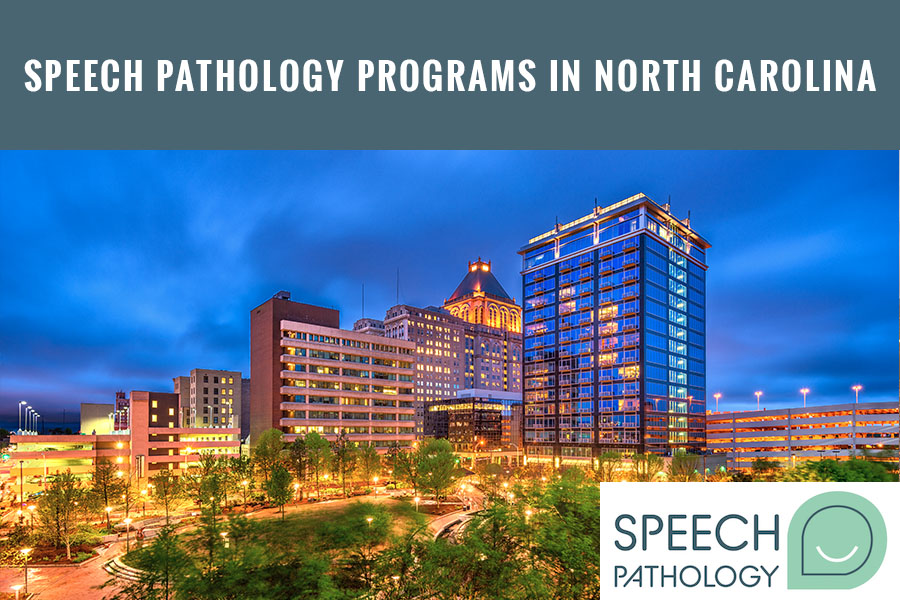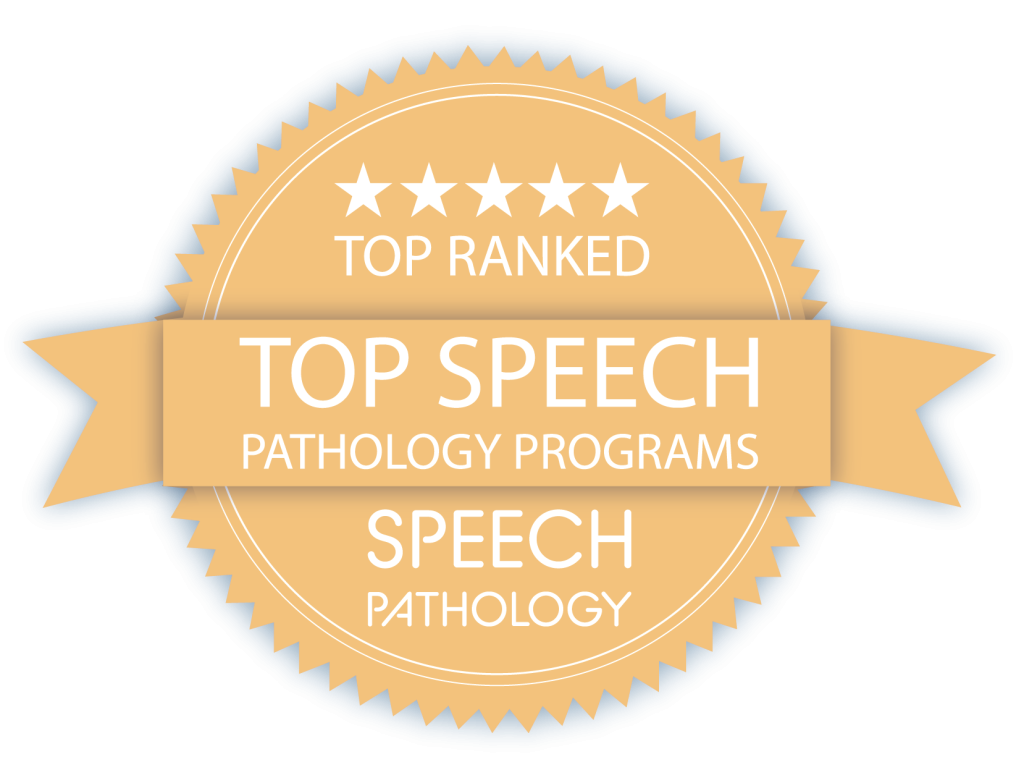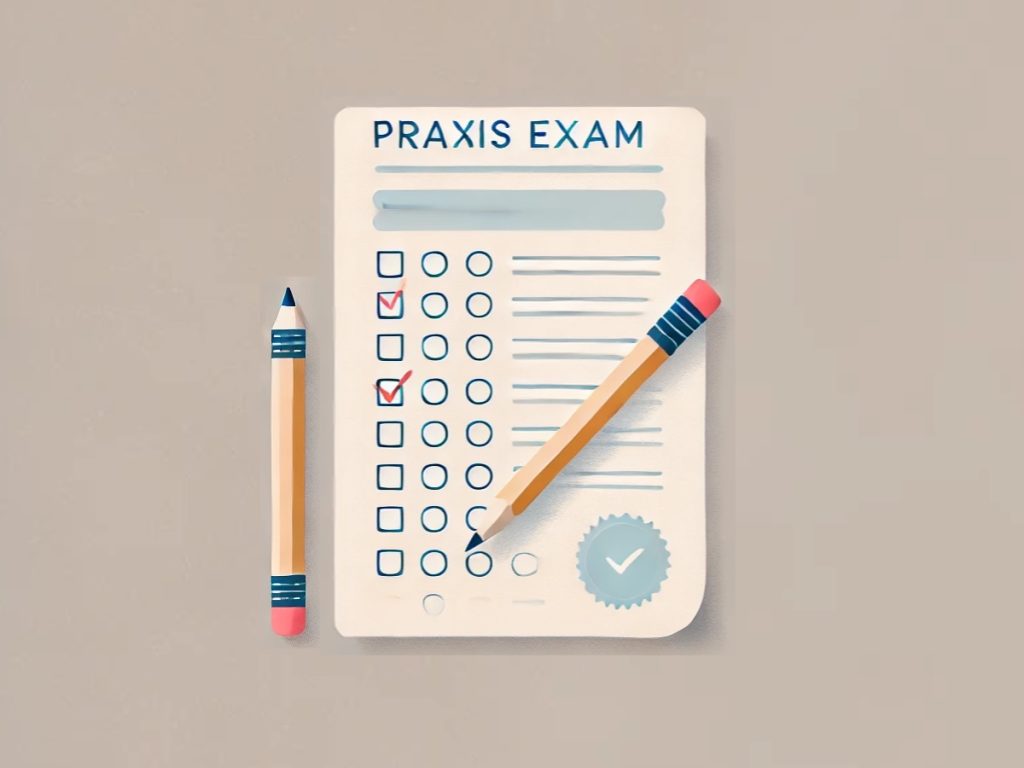Last Updated
April 14, 2025Written By
Daniel Ortiz, M.A., CCC‑SLPPursuing Speech-Language Pathology degrees in North Carolina is exceptional in that it offers both ASHA accredited programs and a career landscape that is as promising as that of other states. The Appalachians’ rolling hills or Raleigh and Charlotte’s vibrant urban centers will ensure that this state offers a unique background for SLP education.
The state is particularly attractive for its strong job market for SLPs, with a projected growth rate of 21% from 2021 through 2031, higher than the national average, as reported by the Bureau of Labor Statistics. This growth is real; there are more than 200 job postings available across the state today, including schools and hospitals. Salaries for speech pathologists are average here, about $70,810, with the potential to earn more in metropolitan areas, which compares quite favorably to those in states with lower demand or market saturation.
The public universities of the state, Appalachian State University and East Carolina University, provide excellent SLP programs that suit different learners’ requirements, from online speech pathology degrees to in-person training. North Carolina’s commitment to education is evident in its ASHA-accredited programs, which help graduates meet licensure and practice requirements. Not limited to central cities, some states, North Carolina extends its academic richness to various areas, thus enabling students to get a good education without having to move to one particular metropolitan area. When compared to South Carolina or Virginia, where costs or program variety may not be as favorable, the relatively affordable tuition for in-state residents makes North Carolina a compelling choice.

Explore the top-rated speech pathology programs in North Carolina with our curated rankings. Whether you’re just starting or ready for the next step, speechpathology.org showcases the best speech pathology schools in North Carolina for aspiring professionals. Discover how programs are selected at speechpathology.org/rankings-methology.

Chapel Hill, NC - Public 4-Year - unc.edu
Campus Based - Visit Website
The University of North Carolina at Chapel Hill offers a Master of Science in Speech and Hearing Sciences, a 60-semester-hour program that prepares students for ASHA certification. This campus-based program features both clinical and non-clinical tracks, integrating classroom learning with laboratory and clinical experiences. Emphasizing evidence-based practice and cultural sensitivity, it focuses on serving diverse populations. Graduates are equipped for careers in various clinical and research settings, with curriculum designed to meet North Carolina licensure requirements. The program requires an entrance exam for admission.
Greensboro, NC - Public 4-Year - uncg.edu
Campus Based - Visit Website
The Bachelor's in Speech Pathology and Audiology at UNC Greensboro is a campus-based pre-professional program aligned with ASHA standards. It requires a 3.0 GPA and 55 semester hours for admission, focusing on foundational knowledge in speech, language, and hearing sciences through academic coursework and guided clinical observations. This program prepares students for graduate studies without requiring ACT or SAT entrance exams.
Campus Based - Visit Website
The University of North Carolina at Greensboro offers an on-campus Master's in Speech-Language Pathology requiring 66 credit hours. This CAA-accredited program emphasizes a lifespan approach to communication and swallowing disorders through academic coursework and clinical experiences at the UNCG Speech and Hearing Center. Students gain hands-on training to serve diverse populations across hospitals, schools, and private practices. No entrance exam is required for this graduate program.
Online Learning - Visit Website
UNCG's online Master's in Speech-Language Pathology is a 66-credit, ASHA-accredited program delivered over five semesters with asynchronous coursework options. It prepares students for CCC certification and state licensure through comprehensive training in communication and swallowing disorder assessment and treatment. Clinical placements occur in various settings nationwide, and no entrance exam is required for admission.
Greenville, NC - Public 4-Year - ecu.edu
Online & Campus Based - Visit Website
East Carolina University's Master of Science in Communication Sciences and Disorders with a speech-language pathology track is a hybrid program requiring an entrance exam. This two-year, 56-credit hour curriculum prepares students for ASHA certification through rigorous academic and clinical training. The program accepts 30-32 campus students and 10-12 distance education students annually, offering extensive clinical experiences across diverse settings. It maintains a 3.0 GPA requirement, accepts up to 9 transfer credits, and requires 21 prerequisite credit hours. The application cycle runs from July 15 to January 15, with both on-campus and distance education tracks available.
Online & Campus Based - Visit Website
East Carolina University's Master of Science in Communication Sciences and Disorders with a communication science track is a hybrid program requiring an entrance exam. This comprehensive two-year, 56-credit hour program prepares future speech-language pathologists through academic rigor and clinical internships. Students can choose between on-campus and distance education options, with 30-32 campus students and 10-12 distance education students accepted annually. The program includes a thesis option and multiple information sessions, maintaining a minimum 3.0 GPA requirement. Designed to meet ASHA certification standards, the application cycle runs from July 15 to January 15.
Boone, NC - Public 4-Year - appstate.edu
Campus Based - Visit Website
Appalachian State University's Master of Science in Speech-Language Pathology equips students with advanced diagnostic and therapeutic skills for communication disorders across all age groups. The program emphasizes hands-on clinical training in diverse healthcare and educational settings, preparing graduates for professional certification. It requires the Graduate Record Exam (GRE) for admission and includes 25 observation hours, focusing on comprehensive speech, language, and swallowing challenges without a specific concentration.
Greensboro, NC - Public 4-Year - ncat.edu
Campus Based - Visit Website
North Carolina A&T State University offers a Bachelor of Arts in Speech/Language Pathology and Audiology, requiring 120 semester hours with 55 dedicated to major courses. Students must maintain a 3.0 GPA overall and in major courses for clinical phase admission. The curriculum covers speech fundamentals, ethical issues, and broad communication sciences topics, preparing graduates for careers in speech and audiology fields. As a bachelor's level program, it requires an ACT or SAT entrance exam for admission. This HBCU and military-friendly institution provides a comprehensive education without a specified concentration.
In the state of North Carolina, the choice between a Bachelor’s in Speech-language Pathology and Master’s degree in Speech Pathology is contingent on what you hope to achieve within this rewarding profession. The initial step is a Bachelor’s degree, which provides the foundation in speech, language and hearing.
If you are new to this field or still unsure of your vocation, this is the ideal program for you. These types of programs are four year programs and to admit a student, the university will require that the applicant has a high school diploma, a good GPA of 3.0 to 3.5 or better and may require prerequisites in science and communication. Some of the jobs that bachelor’s graduates can get include working as SLP assistants (SLPAs) in schools or clinics, working under the direction of a licensed speech pathology professional and with limitations on the level of practice and lower wages of about $40,000 annually.
On the other hand, a Master’s degree in speech language pathology is necessary to practice as an SLP independently, and North Carolina has great programs for this. These degrees also provide clinical training and more specialized classes to enable you to be able to assess and treat communication disorders on your own.
Entrance requirements are quite similar and entail having a Bachelor’s degree (not necessarily in SLP), a 3.5 or higher GPA, GRE scores for some programs, and letters of recommendation to prove your readiness. The two-year program is to enable one to practice as an SLP in various settings, including hospitals, private practices, or schools, and one can decide to work with children, speech therapy, or neurogenic disorders and earn more than $70,000 annually.
To extend your practice beyond the clinical setting, there is a doctoral level but in-state programs are limited to the research based PhD. The PhD in Speech and Hearing Sciences provided by UNC Chapel Hill is ideal for those who want to be researchers and teachers of speech pathology.
This program attracts those who are interested in contributing to the field of speech-language pathology through research, for instance, on language acquisition or hearing loss treatment. To be considered for admission, one must have a Master’s degree (preferably in SLP or a related field), high cumulative GPA, research experience, and a well-articulated vision of your future scholarly interests, which is often presented in a statement of purpose. Some become university professors, research directors or policy makers, and the wages are usually above $90,000 in the academic or similar professions.
The SLPD, a clinical doctorate, is not offered in North Carolina, which may come as a surprise to those wanting to enhance their practical skills without having to leave the state. Where a PhD concentrates on theory and research, an SLPD would focus on clinical expertise–from managing complex cases to starting a specialty practice. Since there are no local options, other possibilities include out-of-state programs such as Kean University’s SLPD in New Jersey, which would mean moving or studying through distance learning.
In terms of costs, the tuition fees of UNC Chapel Hill PhD for the in-state students may start from $12,000 per year and for out-of-state students it may be approximately $36,000 per year, while the cost of an SLPD at another institution could be even more. Career earnings for PhD holders are mainly academic salaries, while SLPD graduates can expect clinical incomes of more than $100,000 in private practice.
Thus, the choice between these is based on motivation: whether to focus on research or practice. Thus, North Carolina’s PhD programs make it a center for academic activity, despite the absence of clinical doctorates within the state boundaries.
In North Carolina, the process of becoming a licensed SLP is supervised by the North Carolina Board of Examiners for Speech-Language Pathologists and Audiologists. The first step to becoming licensed: one must complete 54-66 credit hours of coursework and clinical practicum – as part of their ASHA accredited Master’s degree. This is followed by the PRAXIS exam, a standardized test to signify the entry level of SLPs.
Next comes the clinical fellowship year (CFY), where you work up to 1,260 hours over at least 36 weeks, gaining supervised experience and mentoring from a CFY supervisor. After that, apply to the board and you’re good to go. In order to retain that license, one must have 30 continuing education hours every three years; these can be attained through workshops, courses, or conferences to keep one’s skills up to date.
North Carolina has its own unique way of licensing speech-language pathologist assistants (SLPAs). You must have an associate or bachelors degree in a related field, have 100 hours of clinical experience supervised (including 35 direct patient contact hours), and be registered with the state board. SLPAs hold certificates, but they work under the supervision of licensed speech pathologists and cannot provide service independently. They renew their registration every year and have continuing education requirements of 10 hours. There is no specific state endorsement, but the process is a clear example of how North Carolina guarantees high quality service: a human touch for both the practitioner and the patient.
Speeding up your Speech-Language Pathology (SLP) journey in North Carolina is tricky due to fixed educational and licensure requirements, but there are ways to nudge it along. For a Bachelor’s, like at Appalachian State or East Carolina, the four-year timeline can dip to three or three-and-a-half with AP credits, community college transfers, or summer classes—ensuring prerequisites for a Master’s are met. The Master’s, essential for licensure, takes two years at places like UNC Greensboro or East Carolina, with ASHA’s 60 credit hours and 400 clinical hours leaving little room to rush. Online speech pathology options might streamline logistics and provide the fastest SLP degree options, though.
You can overlap your clinical fellowship year (CFY)—1,260 hours over 36 weeks—with work by securing a temporary license, potentially cutting post-graduation delays if you transition smoothly from school clinicals. North Carolina lacks combined Bachelor’s-to-Master’s tracks or an SLPD, and the PhD at UNC Chapel Hill (four to six years) resists haste. At best, you could trim six months to a year off the typical seven-year path—three years for a Bachelor’s, two for a Master’s, and a swift CFY start. It’s not drastic, but maximizing credits and planning clinicals strategically can help. Check with programs for summer or transfer options to fine-tune your pace.
| School Name | Highlights | Retention & Grad Rates |
|---|---|---|
| University of North Carolina at Greensboro |
|
|
| University of North Carolina at Chapel Hill |
|
|
| Appalachian State University |
|
|
The cheapest SLP programs in North Carolina are reasonable and play a role in deciding your educational choices and many of them are offered by public universities. One example is a Bachelor’s degree in Communication Sciences and Disorders at Appalachian State University, which costs $4,000 for in-state students per semester and $12,000 for out-of-state students, all for four years of preparation. Other costs for technology or labs may increase the costs slightly but, overall, the value is great. Master’s programs, including those found at East Carolina University or UNC Greensboro, are also quite affordable for in-state students and are within the range of $4,000 to $5,000 per semester for tuition.
The cost may increase for online speech pathology programs, but for out-of-state students, it can be three times more expensive because of residency requirements. These two-year degrees are important for SLP licensure and fuse clinical and academic training without costing locals too much. The PhD at UNC Chapel Hill is a research-focused program and is more expensive, costing $12,000 per year for in-state students, due to its specialization, with no comparable program offered by a SLP-D. The costs of North Carolina’s public institutions are reasonable, especially for residents, and do not compromise the quality of education for a good job prospect – a good investment for becoming a speech-language pathologist with minimal financial strain.
| School Name | Highlights | Annual Estimated Tuition & Fees |
|---|---|---|
| North Carolina A & T State University |
|
|
| University of North Carolina at Greensboro |
|
|
| East Carolina University |
|
|

If you are interested in pursuing a career in SLP and have been researching licensing requirements or are simply interested in learning more about SLP

Dyslexia, a common learning difference affecting reading, writing, and language processing, can present unique challenges for students transitioning from high school to college. Fortunately, a

If you have ever been researching speech-language pathology careers and come across the words ‘speech pathologist’ and ‘speech therapist’, you might wonder if they are

If you are pursuing the position of a speech-language pathologist, then you may have heard of the Praxis exam from your professors, classmates, or even